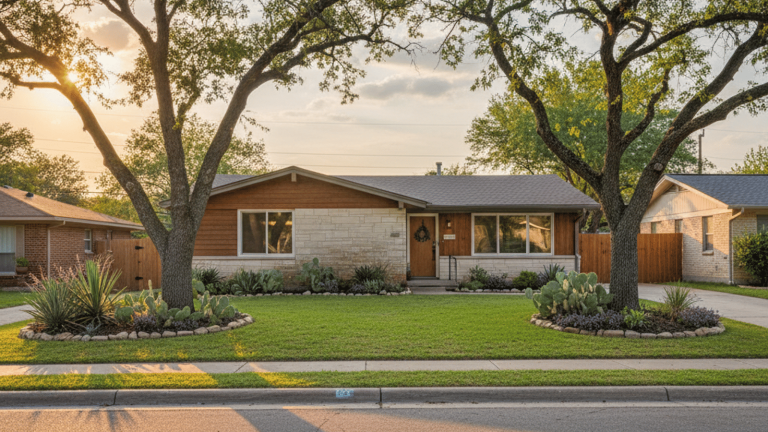Ancillary probate is a second, smaller probate case that opens in a different state when a deceased loved one owned real property or other titled assets outside their home state. It runs alongside the primary probate, which lawyers sometimes call domiciliary or main probate, and lets the local court where the out-of-state property is located make sure title is clear before any creditor, heir, or beneficiary can touch it.
Think of it this way: the court in the home state controls the overall estate, but a judge in the other state still has legal jurisdiction over land, mineral rights, or even a safe-deposit box sitting inside that border. Until that secondary court signs off, the deed or account remains frozen.
Understanding Ancillary Probate
If a decedent lived in Texas but kept a ski cabin in Colorado, the Texas probate court cannot pass Colorado real estate on its own. A separate Colorado judge must validate the will’s validity, accept certified copies from the primary probate, and approve the transfer. The executor, or another personal representative, files for ancillary administration in that county so the clerk can record a clean deed and update public records.
Because every state sets its own probate laws, local rules on creditor notice periods, publishing requirements, and community property rights can vary. Ancillary probate keeps those differences sorted without forcing the primary court to guess at foreign statutes.
The Ancillary Probate Process
A personal representative usually follows these steps:
- Open the primary probate proceeding in the decedent’s domicile state and secure letters testamentary or letters of administration.
- Gather certified documents: the will, letters, and an inventory showing each out-of-state asset.
- File a petition for ancillary administration in the county where the property is located. Most clerks need the certified packet and a short description of the property owned.
- Give notice to local creditors, heirs, and taxing authorities according to that state’s probate laws.
- Wait for the ancillary court’s order allowing sale or distribution.
- Record new deeds or retitle the asset so ownership of the property shifts to the estate or the named beneficiary.
A quick filing often wraps in a few months, but crowded dockets or contested claims can stretch the timeline.
Ancillary Probate Timeline
Timelines differ widely. A straightforward ancillary probate in Texas may finish in two to four months, while a similar case in California can push six months or more because of longer notice windows and heavier caseloads. Factors that slow the clock include:
- mandatory publication periods for creditors;
- appraisal delays when the estate owns unusual real property;
- objections from heirs who dispute ownership of the property;
- required waiting periods before the court may close the file.
Challenges of Ancillary Probate
Ancillary probate tends to surprise families and add costs just when they thought the main probate was under control.
Additional Costs and Fees
Every extra court filing comes with its own docket fee, publication cost, and sometimes a local appraiser’s invoice. Filing fees can top three hundred dollars before recording the new deed or paying a probate lawyer licensed in that jurisdiction. Travel expenses mount fast when the executor must appear in person or sign documents before a notary in the other state.
Legal Complexity Across States
Community property rules, elective-share statutes, and homestead protections vary. One wrong assumption about how title is held or how joint tenancy works can send the case back to square one. A local probate attorney or law firm familiar with the county clerk’s checklist helps the executor avoid costly do-overs.
Delays in Estate Settlement
Until the ancillary court signs off, assets in that state remain locked. That can stall a sale needed to pay estate debt or leave an heir waiting on rental income. Late creditor claims or missed publication deadlines stack delay on delay.
How to Avoid Ancillary Probate
Families often ask whether they can bypass this secondary proceeding. While you cannot always dodge court oversight, smart planning can keep property in another state out of probate or at least minimize the hassle.
- Revocable trust: Deeding out-of-state land into a living trust moves ownership from the individual to the trust. At death, the successor trustee transfers or sells the real property without opening ancillary courts.
- Joint ownership: List the property in both owners’ names with rights of survivorship, and when one owner dies the title slides over to the survivor automatically; no probate paperwork required.
- Transfer-on-death deed: Many states let you record a beneficiary deed that names who takes title after you pass; once filed, the property moves directly to that person, bypassing any ancillary probate.
- Business entity: Park the real estate inside an LLC or corporation, and the company, not the individual, owns it; at death only the membership interests or shares change hands in the main probate, so a second court case isn’t necessary.
A complete estate plan that lists every piece of real estate owned in different states, and places it in the right vehicle, can help you avoid ancillary probate altogether.
Deciding Whether Ancillary Probate Is Necessary
The executor’s first task is to figure out if the estate really needs a secondary probate case or if the primary probate process in the home state can handle everything. Ancillary probate is required only when the decedent owned real property or titled assets in a different state that will not transfer under the home state’s order. Cash, stocks, and personal items usually follow domiciliary probate orders without trouble, but ownership of the property, especially real estate, sits under the laws of the state in which the property is located.
Here’s a quick framework the personal representative can follow:
- Start by opening the primary probate case in the court in the home state and securing letters testamentary.
- Review the will’s validity and the inventory to see which parcels or investment property lie across state lines; local probate rules apply only to assets inside that border.
- Ask a probate attorney licensed where the out-of-state property is located whether ancillary administration is the only form of probate available. Some ancillary courts accept a simple recording of certified orders; others insist the executor files for probate there as well.
- Determine whether ancillary probate is necessary for each parcel. Condominiums, mineral interests, or farmland may require a full secondary probate, while a revocable trust on record can avoid ancillary courts entirely.
- If the estate must go through ancillary proceedings, plan the timeline so the executor can go through probate in the state promptly; waiting can stall sale proceeds needed for creditors or beneficiary distributions.
Because every state sets its own probate laws, a law group familiar with both jurisdictions, home and away, can keep the primary probate proceeding and the secondary probate running in sync. Taking time up front to confirm which assets trigger local probate prevents last-minute surprises and keeps the estate’s distribution schedule on track for heirs in multiple states.
Final Thoughts on Ancillary Probate
Ancillary probate may feel like a bureaucratic detour, but it exists to protect the local rules where the property is located. If a deceased loved one left investment property outside of Texas, the executor must check whether ancillary probate is necessary before selling or distributing the asset. Early coordination with a probate attorney in each state, accurate inventories, and a clear estate plan save heirs time, money, and headaches when property spans multiple jurisdictions.
FAQ’s About Ancillary Probate and the Estate Plan
Often no. Many banks will release funds with a certified copy of letters testamentary, but some insist on a local order.
Yes, but most states restrict non-lawyers from practicing law. A local attorney smooths filings and keeps the probate process compliant with state-specific rules.
That is allowed. The primary executor may delegate duties to a co-executor in the secondary state, provided communication stays clear so the ancillary proceeding does not conflict with the main probate.
Every state runs on its own timeline. In California, creditors get roughly four months from the date the ancillary petition is filed; in Florida, the window is closer to three. Miss the cutoff and the court will usually toss a late claim, unless a forgotten asset surfaces years later and forces the case back onto the docket.





